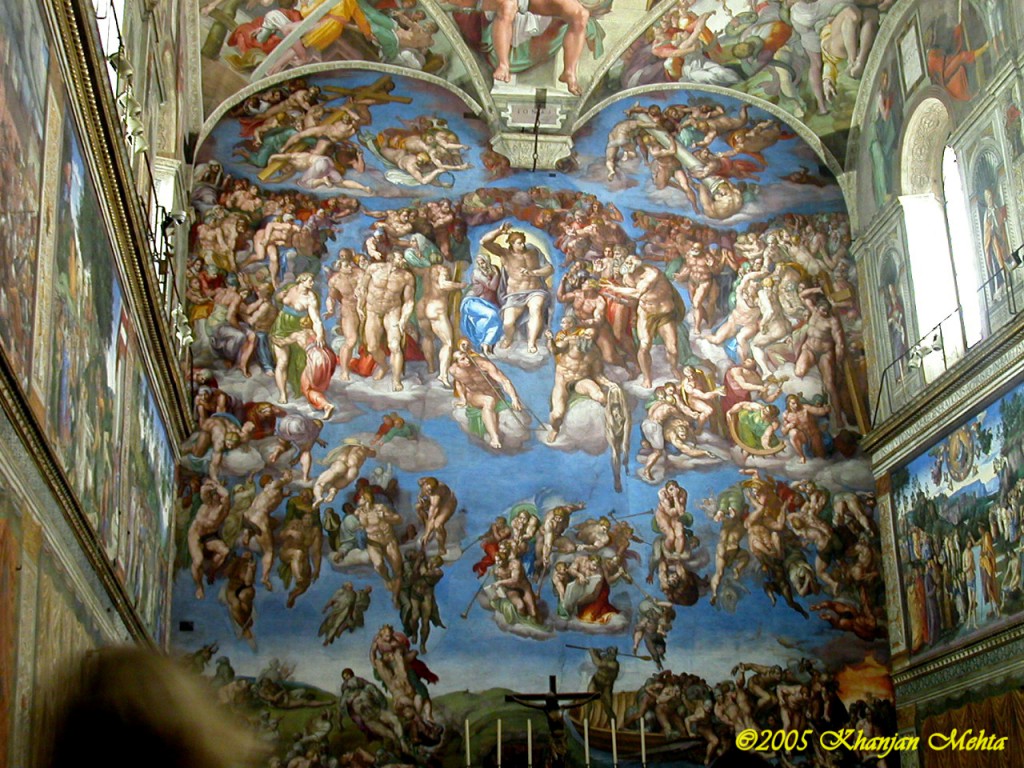
I recently read that some theologians have argued that we can hope no one is in hell and that all will be saved. Is this a reasonable position to hold?
We can start with Jesus’ own teaching. We know he spoke numerous times about the existence of hell, warning his listeners to be on guard.
For example, in his description of the Last Judgment he speaks of the Son of man coming in his glory for the final judgment and saying to those on his left hand: “Depart from me, you cursed, into the eternal fire prepared for the devil and his angels; for I was hungry and you gave me no food, I was thirsty and you gave me no drink… and they will go away into eternal punishment, but the righteous into eternal life” (Mt 25:31-46).
He also spoke about how difficult it is to be saved and how easy to be damned: “Enter by the narrow gate; for the gate is wide and the way is easy, that leads to destruction, and those who enter by it are many. For the gate is narrow and the way is hard, that leads to life, and those who find it are few” (Mt 7:13-14).
His listeners clearly understood that it is not easy to be saved, to a point where someone once asked him: “Lord, will those who are saved be few?” He answered, “Strive to enter by the narrow door…” (Lk 13:23-24).
From the very fact of Jesus’ repeated teaching we can be certain that there is a hell. Jesus, who is full of mercy and wants all to be saved (cf. 1 Tim 2:4) would not warn people about a state after death that did not exist, or to which no one was going to go.
Precisely because he loves us so much and wants all to be with him, he warned us about the real possibility of hell so that we would live good lives and not go there.
Common sense and experience confirm the real possibility of going to hell.
Given the effects of original sin such as pride, self-centredness, laziness, self-indulgence, etc, we know well that unless we struggle to resist temptations and to do good, it is very easy to lapse into a way of life that is grievously sinful and offensive to God.
We know people who have wandered off the path and now lead lives of grave sin, saying they don’t believe in God or life after death and consequently do not pray.
It is true that anyone can repent on their deathbed, but we cannot be sure such people will do it. Hell is thus a very real possibility for many.
As if this weren’t enough, the Church has always taught the existence of hell. According to the Catechism of the Catholic Church, “The teaching of the Church affirms the existence of hell and its eternity” (CCC 1035).
What is more, the numerous people down the ages – St Teresa of Avila, Sr Josefa Menendez, the three children of Fatima – who have had visions of hell, all speak of the horrible shrieks and cries of the people who are there along with the devils.
Who, then, holds the view that God’s mercy is so great that we can reasonably hope that all are saved? In the early Church a few writers, among them Origen, St Gregory of Nyssa and St Maximus the Confessor, held some form of belief that in the end all will be saved.
The idea was revived in the 20th century, especially by theologians Karl Rahner and Han Urs von Balthasar. Rahner held that all people are “anonymous Christians” and so can go to heaven.
Von Balthasar, in his book Dare We Hope That All Men Be Saved?, bases himself mainly on the Church’s liturgy to argue that indeed we may hope that all are saved.
Even so reputable a figure as Fr Robert Barron says, in his book Catholicism, that “we may, as Hans Urs von Balthasar insisted, reasonably hope that all will find salvation…” (p. 258).
On the other hand, Ralph Martin, a consultor to the Pontifical Council for the New Evangelisation in his book Will Many be Saved?, argues strongly against the idea of universal salvation.
In summary, the matter must be regarded as an open question, with highly respected figures, past and present, on both sides.
As for me, while I too hope and pray that all will be saved, I firmly believe that, in spite of God’s infinite mercy and because of his respect for our freedom, there are many people who will not be saved.
Perhaps very many. And so I will continue to believe, and to teach others, that there is a hell but that, if we strive to love God with our whole heart and to do his will, repenting of our sins, praying and receiving the sacraments, there is very little likelihood that we will go there.
For more, go to fatherfladerblog.wordpress.com or contact Fr Flader on frjflader@gmail.com.